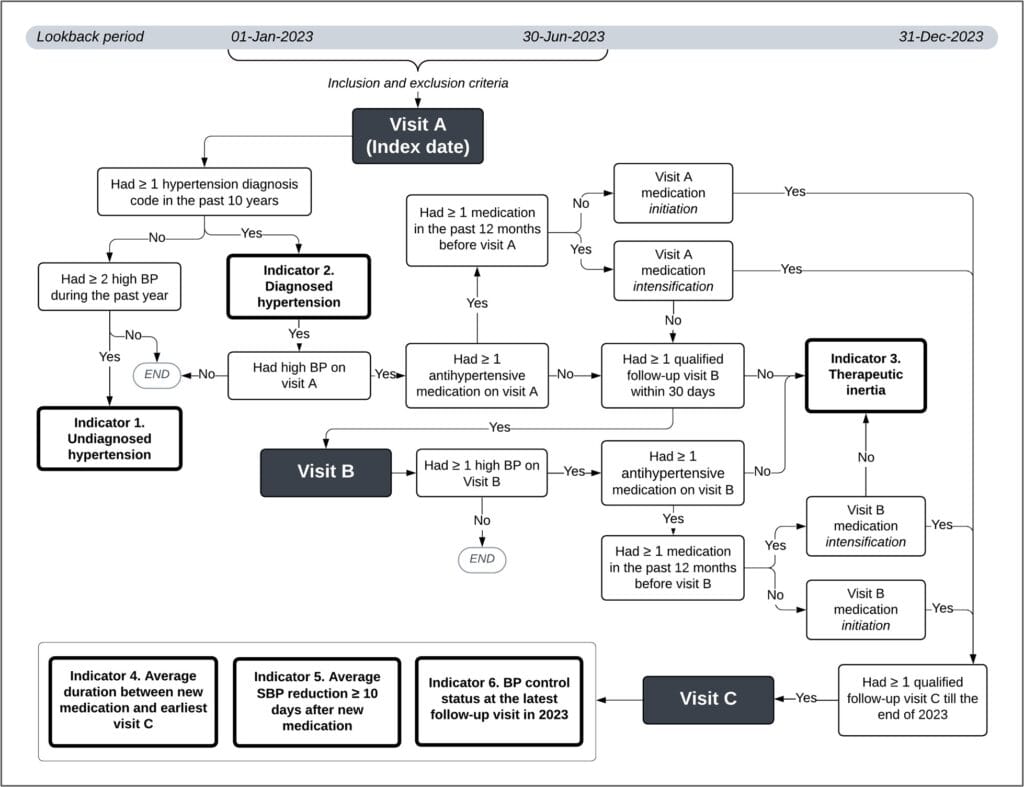Cardiovascular
Healthcare quality, therapeutic inertia, and blood pressure control among patients with hypertension Sandra Jackson* Sandra Jackson Siran He Omoye Imoisili Elizabeth Lundeen Greg Wozniak Stavros Tsipas Nicole Therrien Elena Kuklina
Purpose: To assess hypertension-related healthcare quality metrics.
Methods: 3,410,800 patients aged ≥18 yrs with ≥1 primary or hypertension-related encounter and ≥1 blood pressure (BP) measurement between January–June 2023 were identified from the IQVIA Ambulatory Electronic Medical Records-United States, a nationwide dataset of over 100,000 outpatient providers. Adapting American Medical Association metrics (Figure), potential therapeutic inertia was defined as uncontrolled BP ≥140/90 mmHg and no medication intensification at the index visit or a subsequent visit within 30 days. Among patients receiving medication intensification [≥1 new antihypertensive medication class(es)], we assessed: duration to earliest follow-up, subsequent systolic BP (SBP) reduction, and subsequent BP control. Demographic and clinical characteristics associated with quality metrics were analysed using logistic regression.
Results: Of 1,585,894 patients with diagnosed hypertension, 469,904 (29.6%) had uncontrolled BP at the index visit. Among these patients, 317,675 (67.6%) experienced potential therapeutic inertia. For patients receiving medication intensification, median duration to follow-up was 68 days, mean SBP reduction was 12.6 mmHg, and 55.6% achieved subsequent BP control. Older patients (aged ≥65 yrs) were more likely to experience potential therapeutic inertia (aOR 1.16, 95% CI 1.14–1.18). Among those receiving medication intensification, Black (vs. White) patients (0.66, 0.63–0.70) and those seeing hypertension specialists (vs. family medicine) (0.77, 0.73–0.81) were less likely to achieve subsequent BP control.
Conclusion: Potential therapeutic inertia affected two-thirds of patients with diagnosed hypertension and uncontrolled BP, and was more likely among older adults. Among patients receiving medication intensification, only half achieved subsequent BP control. Clinicians and health systems can implement evidenced-based strategies to improve hypertension management.

